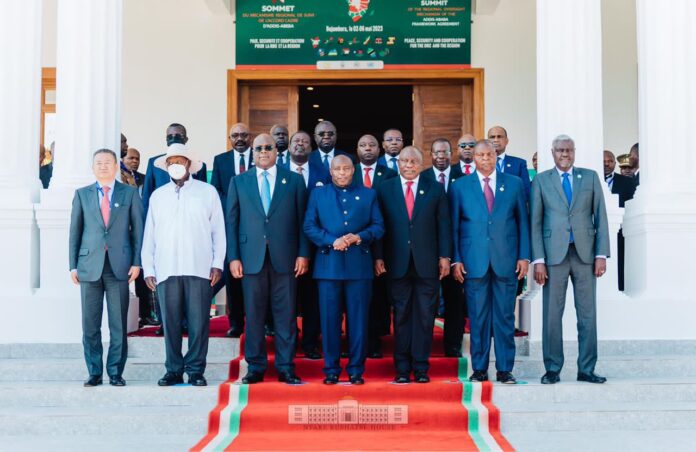In a meeting marked by the presence of UN Secretary-General Antonio Guterres, African Union President Moussa Faki, and the Presidents of Burundi, Congo, South Africa, and Uganda, the 11th follow-up summit of the Addis Ababa Agreement for peace in the eastern Democratic Republic of Congo has come to an end. The meeting aimed to revive the agreement, whose results have fallen short of expectations, and the consensus was that the agreement needs to be revitalized.
Although the final communiqué has not yet been published, a roadmap has been set to evaluate the framework agreement. Several steps are planned, including a meeting under the auspices of the African Union this month, followed by a retreat with all political and diplomatic actors, as well as researchers working on the issue. The goal is to submit a report to the next follow-up summit, which will likely take place in 2024.
Representatives from thirteen countries in the region attended the summit, and several heads of state made the trip, such as Congolese President Félix Tshisekedi, South African President Cyril Ramaphosa, Ugandan President Yoweri Museveni, and Central African President Faustin Archange Touadéra. However, the absence of two heads of state was notable: Rwandan President Paul Kagame and Kenyan Deputy President William Ruto, who leads the East African Force deployed in the DRC. The latter is said to be at odds with Kinshasa since the replacement of the commander-in-chief of the Force. Meanwhile, the Rwandan and Kenyan officials are in London for the coronation of Charles III.
The closed-door discussions were somewhat tense, particularly between the Congolese president and the Rwandan minister. Kinshasa accuses Kigali of supporting the M23 movement, which has taken up arms and conquered part of the North Kivu province for over a year. The accusations have been supported by several UN expert reports.
The meeting allowed participants to confront their perspectives on the situation, with UN officials describing the discussions as “cordial but frank and direct.” The summit took place in a context of “exacerbated tensions,” which contrasts with the optimism that prevailed in the region not long ago, according to Moussa Faki Mahamat, the African Union’s incumbent president. While the participants acknowledged that the results of the agreement have been modest, they have not given up on revitalizing it.





























































